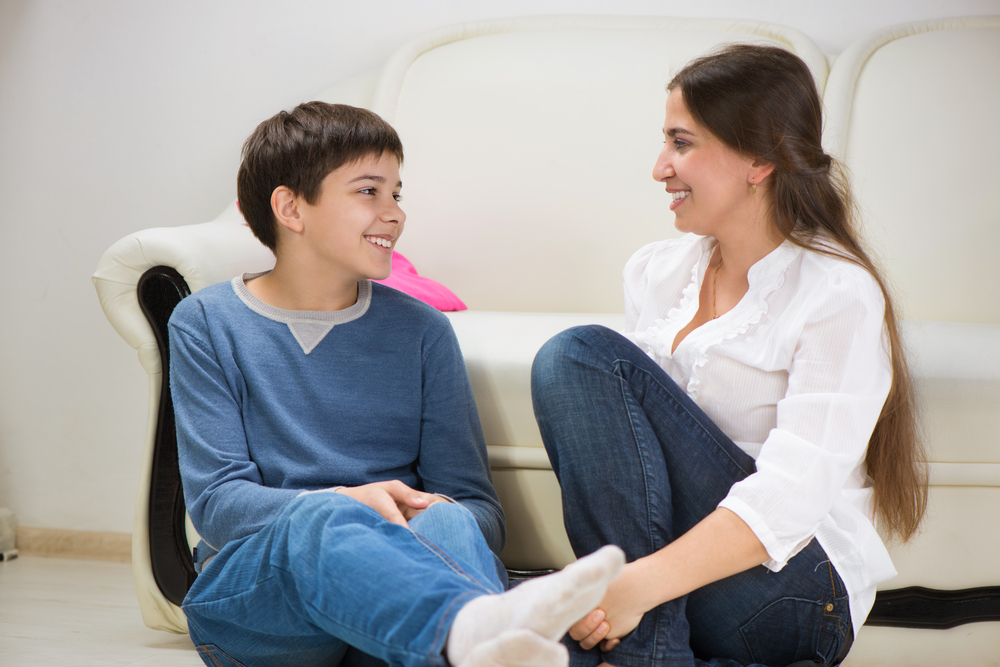The words a child hears from their parents or caregivers can shape how they feel about themselves, their safety, and their connection to the world. Bedtime and morning moments are two of the most influential times in a child’s day. Research in child development shows that positive affirmations and loving words help strengthen emotional security, build self-esteem, and foster trust. The way a day begins and ends can influence a child’s mood, behavior, and sense of belonging. Here are 5 meaningful phrases to say before bedtime and 5 uplifting ones for when they wake up.
1. “I love you, no matter what”

Ending the day and before bedtime with unconditional love reassures a child that they are valued even when they make mistakes. This phrase teaches that love is not based on performance, grades, or perfect behavior, but simply on who they are. For children, this helps remove the fear of disappointing you and allows them to rest knowing they are accepted exactly as they are. When repeated consistently, it can reduce anxiety and help build emotional resilience. It also supports the development of secure attachment, a key factor in healthy relationships later in life. Saying it before bedtime lets them drift off with the reassurance that nothing they could do would ever take away your love.
2. “I’m proud of you”

Children often work hard for approval, whether they are learning new skills, behaving well, or simply making an effort to be kind. Telling them you are proud of them before bedtime makes them feel that their actions and growth are noticed. It is important to be specific when possible, for example, praising them for sharing with a sibling or for trying their best on a project. This type of acknowledgment helps children internalize their own value beyond achievements, fostering a healthy sense of self-worth. When they hear these words at night, they go to bed feeling accomplished, which can boost motivation and positivity the next day.
3. “You made me smile today”

Letting a child know that their presence brightened your day has a powerful emotional impact. This phrase communicates that they bring joy into your life simply by being themselves. It is especially effective if you add a short example, such as telling them you loved the way they laughed during dinner or how they told a funny story. This helps them connect their actions to positive emotions in others, teaching them empathy and social awareness. Ending the day with a reminder of the happiness they spread can encourage them to act with kindness and warmth in the future. It also reinforces that they matter in the lives of the people they love.
4. “You are safe and loved”

Children need to feel both physical and emotional safety to thrive. Saying this before bed reassures them that they are protected and cared for, easing fears or anxieties they may have. It can be particularly comforting for children who are prone to bad dreams, have recently experienced change, or are naturally more anxious. Pairing these words with gentle physical affection, such as a hug or a kiss on the forehead, can deepen the sense of security. Over time, hearing this nightly builds trust and emotional stability. It also strengthens the bond between parent and child, making bedtime a time of connection instead of fear.
5. “Sweet dreams, I’ll see you in the morning”

This phrase combines comfort with predictability, both of which are essential for a child’s emotional well-being. Wishing them sweet dreams helps set a positive tone for their sleep, while promising to see them in the morning assures them of your continued presence. This routine can become a special signal that the day is ending on a calm and loving note. For younger children, it can help reduce nighttime separation anxiety, as they know they will be reunited with you when they wake. Consistently using this phrase can make bedtime feel safe, secure, and even something to look forward to.
5 Loving Things to Say to a Child When They Wake Up

Mornings shape the way a child approaches their day. The first words they hear can boost their confidence, lift their mood, and help them feel deeply loved. Starting the day with kindness not only strengthens your bond but also gives them the emotional support they need to take on the world.
1. “Good morning, I’m so happy to see you”

Starting the day with joy in seeing your child instantly sets a warm, positive tone for what follows. This simple statement tells them that their presence is valued the moment they open their eyes. It signals that they are loved not just for what they do, but for who they are. This kind of emotional greeting can help ease morning stress, making it less likely that the day begins with frustration or rushed tension. It also helps children feel secure, knowing that even before the day’s events unfold, they are already accepted and cherished. Over time, these morning words can help them develop a natural sense of optimism, which can influence their confidence in school, friendships, and other activities.
2. “Did you sleep well?”

Asking this question shows that you care about their rest and overall well-being. It invites them to share their experiences from the night, whether they had a good dream, a restless sleep, or a concern they want to talk about. This kind of gentle check-in builds open communication, which is key for emotional health. It also gives you valuable insight into their physical and mental state so you can support them appropriately throughout the day. For children, knowing that their comfort matters enough for you to ask reinforces the idea that their needs are important. It’s a small but powerful way to start the day with empathy and attention.
3. “Today is a brand-new day”

This phrase helps children learn that each day offers fresh opportunities, no matter what happened yesterday. It encourages resilience by showing that mistakes or difficult moments from the past do not define them. This mindset supports emotional growth, as it helps them focus on what they can do now instead of dwelling on past disappointments. You can strengthen the message by pairing it with something exciting or positive they can look forward to, like a fun activity or a chance to learn something new. Over time, hearing this regularly can help children approach challenges with curiosity and hope, instead of fear or reluctance.
4. “I believe in you”

Children thrive when they feel supported, and this phrase communicates complete trust in their abilities. Whether they have a test, a sports event, or just a regular school day, hearing that you believe in them can boost their confidence and determination. This affirmation works best when it is consistent, as it helps build a deep-seated belief in their own capabilities. It also teaches them that challenges are not something to fear, but opportunities to show strength and creativity. By starting the day with this kind of encouragement, you give them a sense of empowerment that can carry them through obstacles and setbacks.
5. “I love you, and I can’t wait to hear about your day”

This phrase combines affection with anticipation, sending them into their day with the knowledge that they are loved and that their experiences matter to you. It reassures them that even when you are apart, the bond remains strong. Knowing you are eager to hear about their day encourages them to pay attention to moments they might want to share later, which can improve communication and reflection skills. This also creates a sense of continuity between morning and evening, making the day feel connected rather than divided. Over time, this routine can help children look forward to reuniting with you, strengthening trust and emotional closeness.
Read More: Why Tiffany Haddish Gifted 100 Suitcases to Foster Children
Disclaimer: This article was created with AI assistance and edited by a human for accuracy and clarity.
Disclaimer: This information is not intended to be a substitute for professional medical advice, diagnosis or treatment and is for information only. Always seek the advice of your physician or another qualified health provider with any questions about your medical condition and/or current medication. Do not disregard professional medical advice or delay seeking advice or treatment because of something you have read here.

